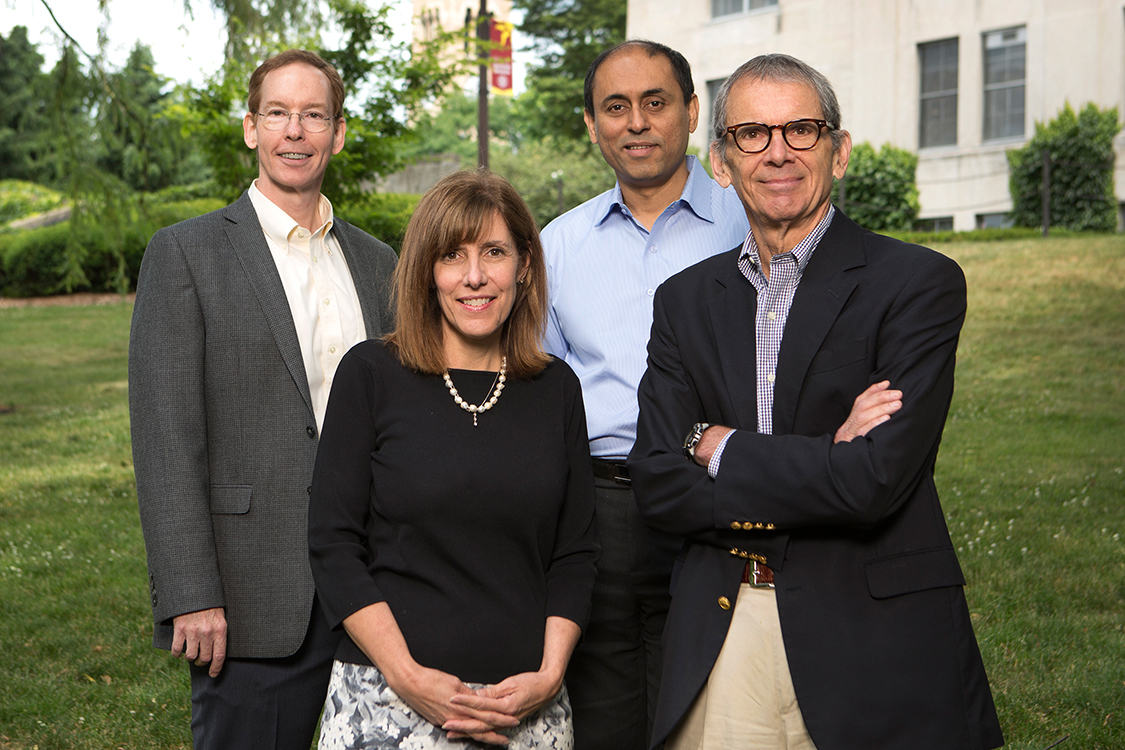Cornell begins 'a new era of business education'
By Susan Kelley

Cornell University has begun “a new era of business education,” with the launch of the College of Business July 1, Dean Soumitra Dutta said.
The College of Business, comprising Cornell’s three accredited business schools – the School of Hotel Administration, the Charles H. Dyson School of Applied Economics and Management and the Samuel Curtis Johnson Graduate School of Management – is now one operating college within the university’s administrative system. Also as of July 1 the deans for each of the three schools have assumed their official positions, Dutta said.
“July 1 marks a new era of business education at Cornell. It is an exciting date in the history of Cornell but by no means completes our transformation efforts,” he said. “In the coming months, we will continue to evolve our organization to create an exemplary college while enhancing the brands of its three schools.”
Next steps include unveiling an integrated admissions portal; cross-listing courses, which will enhance students’ access to a broader range of classes across partner schools; and improving career services. In August, a brand study will be launched, and an advisory council will be established in the fall.
In the meantime, academic and administrative leaders will continue to develop the college. They include:
- Chris Barrett, deputy dean and dean of academic affairs;
- Rohit Verma, dean of external relations;
- Ed McLaughlin, interim David J. Nolan Dean, Charles H. Dyson School of Applied Economics and Management;
- Mark Nelson, the Anne and Elmer Lindseth Dean, Johnson Graduate School of Management;
- Kate Walsh, MPS ’90, interim E.M. Statler Professor and Dean, School of Hotel Administration;
- David Bebko, associate dean, marketing and communications;
- Tim Durnford, MPS ’93, associate dean, technology and infrastructure; and
- Laura Syer, associate dean, finance and human resources.
The college administration is evaluating the post of associate dean for alumni affairs and development before beginning a search for candidates, Dutta said.
Dutta has also appointed seven academic area coordinators, with input from school deans and academic area faculty. Area coordinators, who are all professors, will work to enhance the academic stature of their academic areas, manage teaching assignment coordination and quality control, oversee curriculum standards and coordinate scholarly community activities, among other duties.
In addition, all of the three schools’ faculty members have declared an affiliation with an academic area. The total number of faculty members in each area, and the area coordinators and their respective schools, are:
- accounting (22 faculty): Robert Libby, Johnson;
- applied economics and policy (43 faculty): Gregory Poe, Dyson;
- finance (30 faculty): Pamela Moulton, SHA;
- management and organizations (46 faculty): Glen W.S. Dowell, Johnson;
- marketing and communication (37 faculty): Stijn van Osselaer, Johnson;
- operations, technology and information management (37 faculty): Gary Thompson, SHA; and
- strategy and business economics (19 faculty): Justin Johnson, Johnson.
Various alumni and administrative committees had recommended the creation of a business college at Cornell for years. Since the Cornell University Board of Trustees created the college at its meetings Jan. 30, stakeholders from around the university community have participated in planning the various aspects of the college.
“I thank everyone on campus and off who has been involved in guiding these critical formative steps for the college,” said Provost Michael Kotlikoff. “This effort has involved many faculty, staff, students, alumni, trustees and administrative leaders, and I am especially pleased to see the consensus developed between the schools on how we extend Cornell’s enormous impact in business education and research, and more effectively engage with many of the world’s major challenges.”
Media Contact
Get Cornell news delivered right to your inbox.
Subscribe